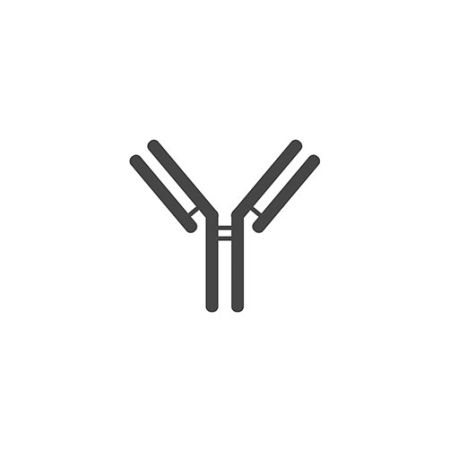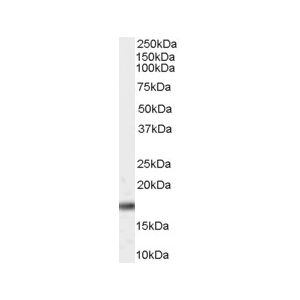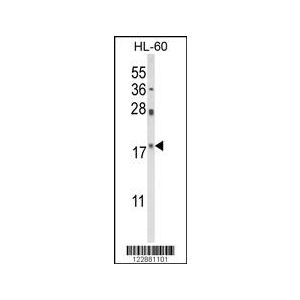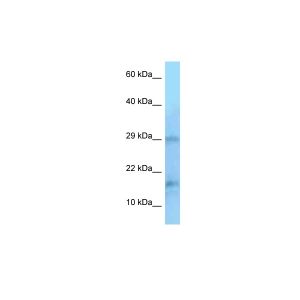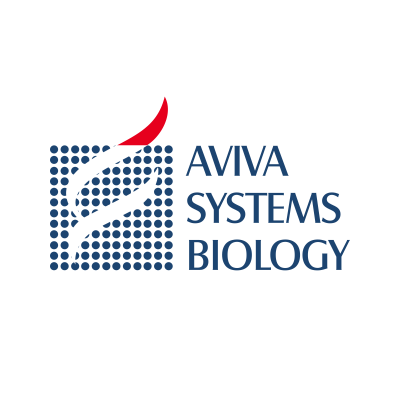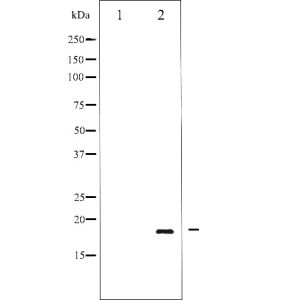PIN1 Antibody (Phospho-Ser16)
Katalog-Nummer OASG05875
Size : 100ul
Marke : Aviva Systems Biology
| Datasheets/Manuals | Printable datasheet for anti-PIN1 (OASG05875) antibody |
|---|
| Predicted Species Reactivity | Human, Mouse, Rat, Monkey |
|---|---|
| Product Format | Liquid. 1 mg/mL in PBS containing 50% glycerol, 0.5% BSA and 0.02% sodium azide. |
| Clonality | Polyclonal |
| Isotype | IgG |
| Host | Rabbit |
| Application | ELISA, IF, IHC, WB |
| Reconstitution and Storage | Store at -20C. Avoid repeated freeze/thaw cycles. |
| Immunogen | Synthesized peptide derived from human Pin1 around the phosphorylation site of S16. Location: 1-80aa. |
| Purification | The antibody was affinity-purified from rabbit antiserum by affinity-chromatography using epitope-specific immunogen. |
| Concentration | 1 mg/ml |
| Target Post-Translational Modification | Phospho-Ser16 |
| Specificity | Phospho-Pin1 (S16) Polyclonal Antibody detects endogenous levels of Pin1 protein only when phosphorylated at S16. |
| Application Info | WB 1:500-1:2000; IHC 1:100-1:300; ELISA 1:20000; |
| Gene Symbol | PIN1 |
|---|---|
| Gene Full Name | peptidylprolyl cis/trans isomerase, NIMA-interacting 1 |
| Alias Symbols | DOD, UBL5 |
| NCBI Gene Id | 5300; 23988; |
| Description of Target | Peptidyl-prolyl cis/trans isomerases (PPIases) catalyze the cis/trans isomerization of peptidyl-prolyl peptide bonds. This gene encodes one of the PPIases, which specifically binds to phosphorylated ser/thr-pro motifs to catalytically regulate the post-phosphorylation conformation of its substrates. The conformational regulation catalyzed by this PPIase has a profound impact on key proteins involved in the regulation of cell growth, genotoxic and other stress responses, the immune response, induction and maintenance of pluripotency, germ cell development, neuronal differentiation, and survival. This enzyme also plays a key role in the pathogenesis of Alzheimer's disease and many cancers. Multiple alternatively spliced transcript variants have been found for this gene. |
| Uniprot ID | Q13526, Q9QUR7 |
| Molecular Weight | 18 kDa |




